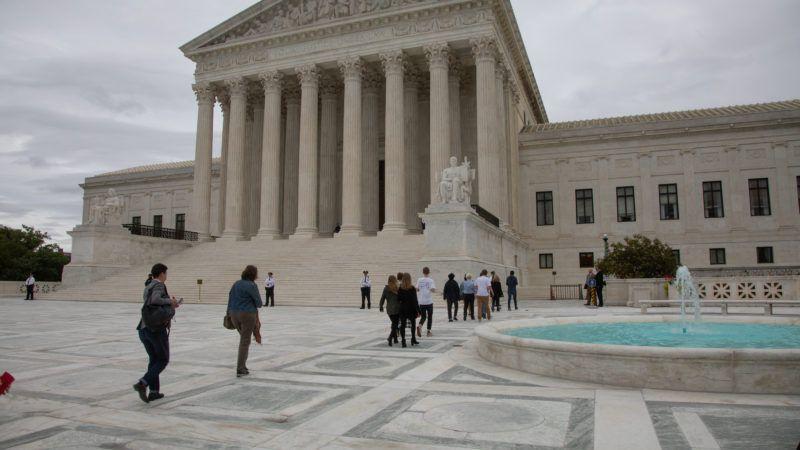Illegal Immigrants Can Face Criminal Charges For Using Stolen Info On Tax Docs: Supreme Court
The Supreme Court ruled on Tuesday that illegal immigrants who use stolen personal information when filling out tax forms for employment can face criminal charges, despite federals laws which liberal justices say should protect those committing fraud, according to Fox News.
Federal law states that information “contained in” an I-9 work authorization form cannot be used for law enforcement, while the Immigration Control and Reform Act (IRCA) states that it’s a federal crime to lie on the document. On Tuesday, the Supreme Court ruled in a mixed decision that if workers use the same information in tax documents, they can face charges.
“Although IRCA expressly regulates the use of I–9’s and documents appended to that form, no provision of IRCA directly addresses the use of other documents, such as federal and state tax-withholding forms, that an employee may complete upon beginning a new job,” wrote Justice Samuel Alito in the court’s opinion. He was joined by fellow conservative justices John Roberts, Neil Gorsuch, Brett Kavanaugh and Clarence Thomas.
The IRCA also prohibits state or local charges or civil cases against “those who employ, or recruit or refer for a fee for employment, unauthorized aliens,” but Alito noted that this “makes no mention of state or local laws that impose criminal or civil sanctions on employees or applicants for employment.” –Fox News
The court was considering the case of Kansas v. Garcia, in which three illegal immigrants used a stolen Social Security number on their I-9 forms. The state dropped charges that used the forms as evidence and agreed not to use them during their trials – claiming that the law doesn’t prevent people from using someone else’s social security numbers on tax documents.
All three defendants in the case were convicted, which was upheld by the Kansas Court of Appeals – only to be reversed by the Kansas Supreme Court, which ruled that the charges were improper because “[t]he fact that this information was included in the W–4 and K–4 did not alter the fact that it was also part of the I–9.”
USSC Justice Alito found this logic to be faulty and overly restrictive.
“Taken at face value, this theory would mean that no information placed on an I–9— including an employee’s name, residence address, date of birth, telephone number, and e-mail address—could ever be used by any entity or person for any reason,” he wrote.
Read the rest here.
Tyler Durden
Thu, 03/05/2020 – 09:26
via ZeroHedge News https://ift.tt/2TDZ4Dn Tyler Durden
